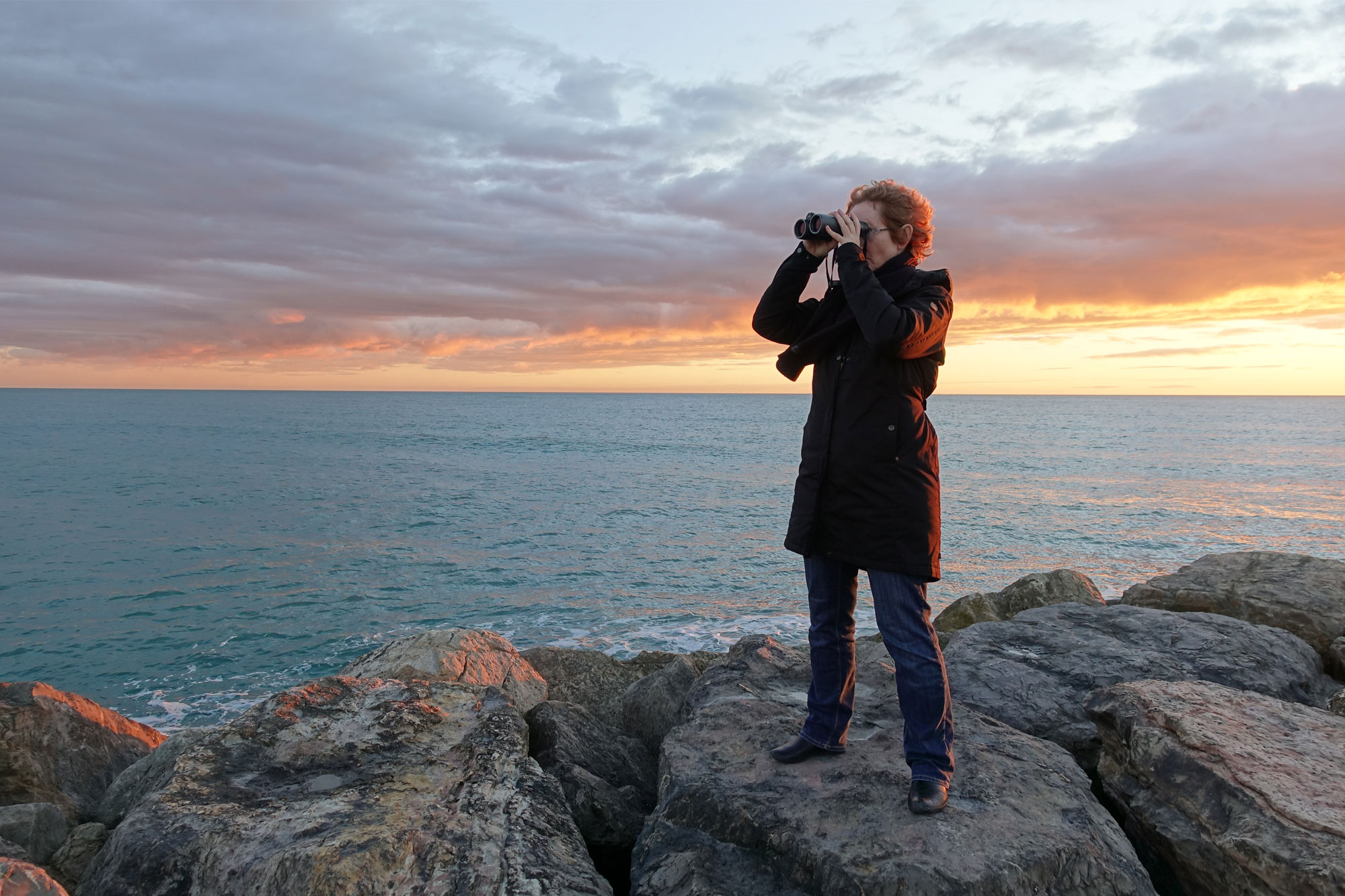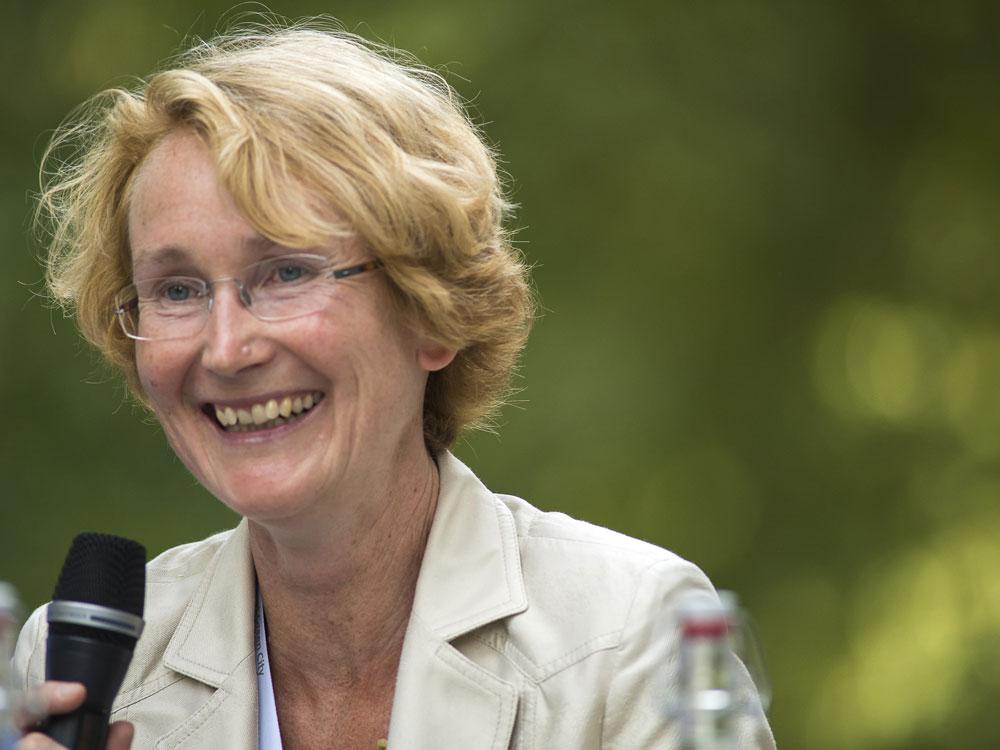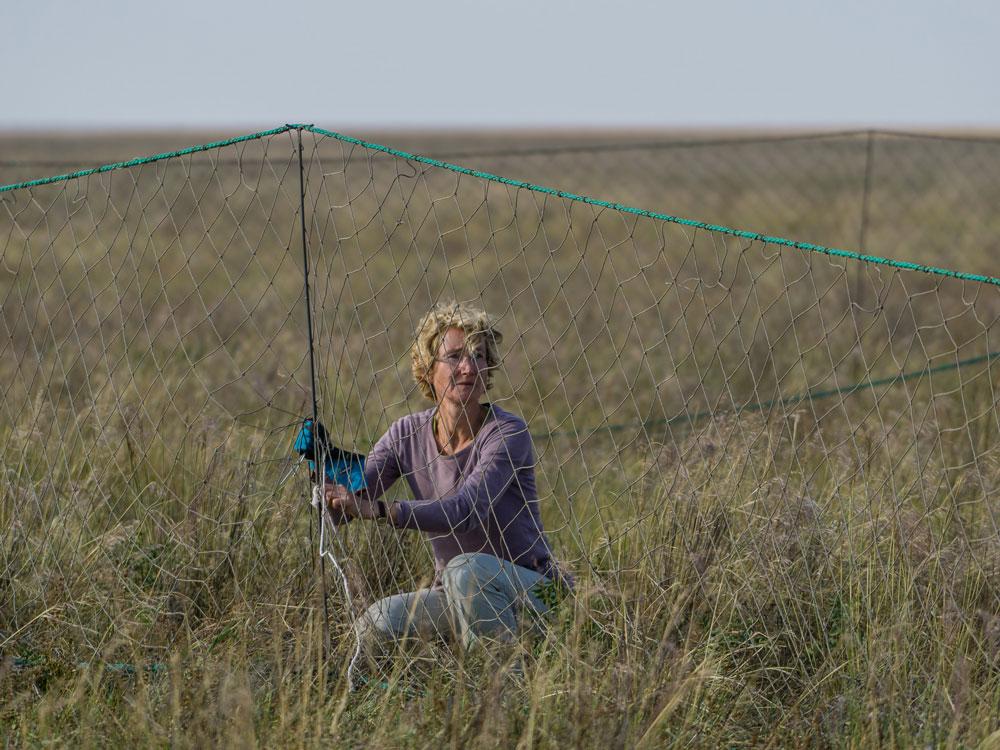Katrin Böhning-Gaese is the Director of the Senckenberg Biodiversity and Climate Research Centre and a professor at Goethe University Frankfurt. An expert in ornithology, she originally studied biology but now mainly carries out research in the field of ecology. In 2021 she was confered the renowned German Environmental Award for her work on biodiversity.

‘The loss of biodiversity is destroying the very foundations of our existence’
Scientist Katrin Böhning-Gaese on extinction and why we urgently need to put an end to it.
Species and ecosystems are dying out. But just how big is the scale of the problem?
We are dramatically overusing the Earth’s resources. Half of our natural ecosystems have already disappeared, and only around a quarter are untouched by humankind. On average, one in four species is threatened with extinction. Palaeontologists are calling it the start of the sixth mass extinction. We are encroaching on nature with no sense of responsibility. This has to end, otherwise we will destroy the very foundations of our existence. Sadly, it’s not yet something that people generally think about day-to-day. From my point of view, that makes the biodiversity crisis even more serious than the climate crisis.
Why do we need biodiversity? What harm would having fewer species do?
Nature is like investing in the stock market. A cleverly chosen, diversified fund is more stable than a single asset. Likewise, the bigger the pool of species, the more resilient the ecosystem. Monoculture crops are much more susceptible to extreme weather events and pests than mixed crops. You can see it particularly clearly in mixed forests, where trees grow their canopy and root systems reciprocatively and come through dry periods comparatively well. Their diversity makes them more robust. In times of climate change, such as now, every species counts. If one fails, due to drought for example, another can take over. The greater the biological diversity, the better this natural ‘life insurance policy’ works.
Are there particular species that are more important to the big picture than others?
There are what are known as keystone species, such as seed dispersers like toucans, which are extremely important for tree propagation. But conversely, this does not mean that we could do without some seemingly less important species. Often, we are simply not aware of the roles they play, or haven’t yet gained a sufficient understanding of how they interact with other species. Plus, we still don’t know exactly how many species there actually are in this world. We estimate around eight million, but it could be ten or twelve million. So it would be illogical to designate particular species as more or less important.


What do we need to do to stop ourselves heading down this path?
The only way to reverse this trend is to tackle it on a number of different fronts. It starts with the politicians developing the right frameworks and ruling that nature requires greater protection. I really hope that the international community at the upcoming Biodiversity Conference in Montreal will set some ambitious targets in this respect, like designating a third of the Earth’s surface as protected areas. But even as individuals, every one of us can do our part. One particularly important thing we can do is reduce food waste to prevent even more land from being converted for agriculture. Eating less meat would make an even bigger impact. Growing the crops to feed these animals takes up a great deal of land, which could otherwise be designated as protected areas or used for direct food production for humans.
What are the main drivers behind the loss of biodiversity?
As I just mentioned, agriculture is the biggest problem. Firstly because it continuously requires more and more land, which it often obtains through deforestation. And secondly because industrialised agriculture, designed for maximum productivity, uses too much pesticide and fertiliser and leaves too little fallow land and hedgerow habitat in between, which are known to encourage biodiversity. Plus, we are taking more from nature than it can replenish. From fish to game animals, medicinal plants and even wood. A third factor that is playing an increasingly significant role in the loss of biodiversity is climate change. It is not yet the main cause, but rising temperatures are threatening ever more species with extinction. Preserving nature is an important tool in the fight against global warming, as environments like forests and moorlands act as natural CO2 sinks. If they were lost, the climate would heat up even more. There’s a close correlation here. Which is why we need as much biological diversity as possible.
What can we all do to help prevent the loss of species?
As I said before, the loss of biodiversity affects us all, but we can also all do our bit to stop and reverse this worrying trend. The first thing we need to do is change the way we see the world and recognise that we too are part of nature. Often it seems as if we see people as one thing and nature as something completely separate. But this is a misconception. We are all part of a single whole. Changing this perception changes how we interact with nature. Secondly, we – particularly those of us in the rich countries of the Global North – need to reduce our consumption and change our behaviours to make them more sustainable. Because almost everything we consume comes, in one form or another, from nature. Much of what we buy we don’t even need. Being more moderate in our consumption would make a real contribution to maintaining biodiversity.

More on biodiversity: